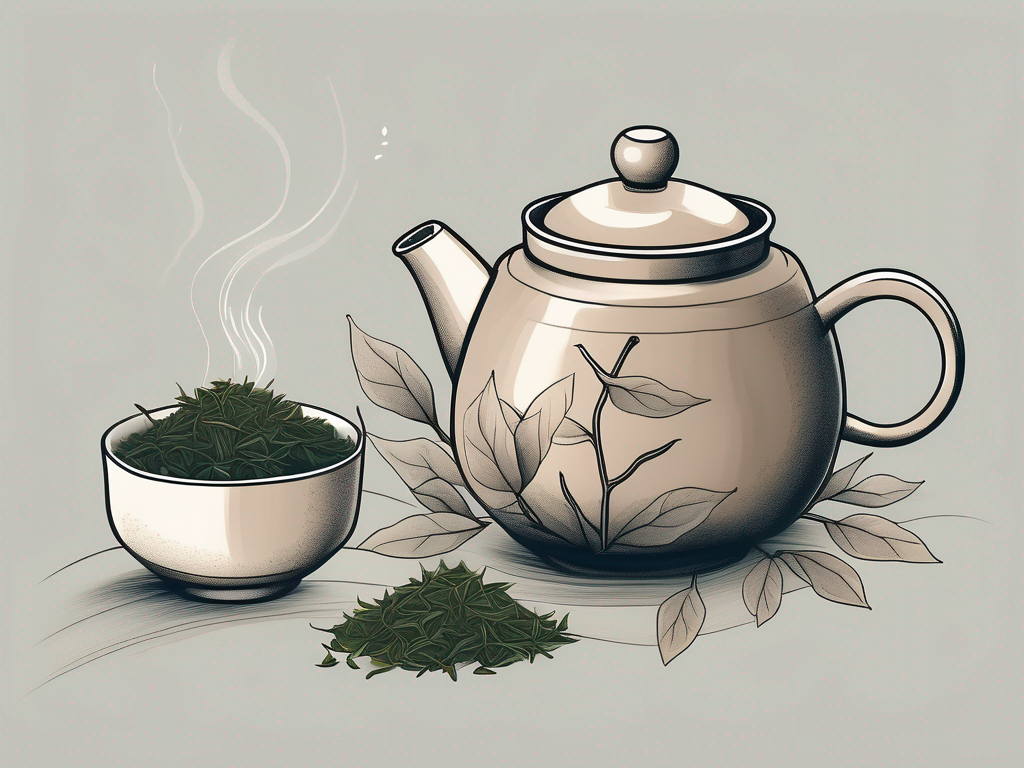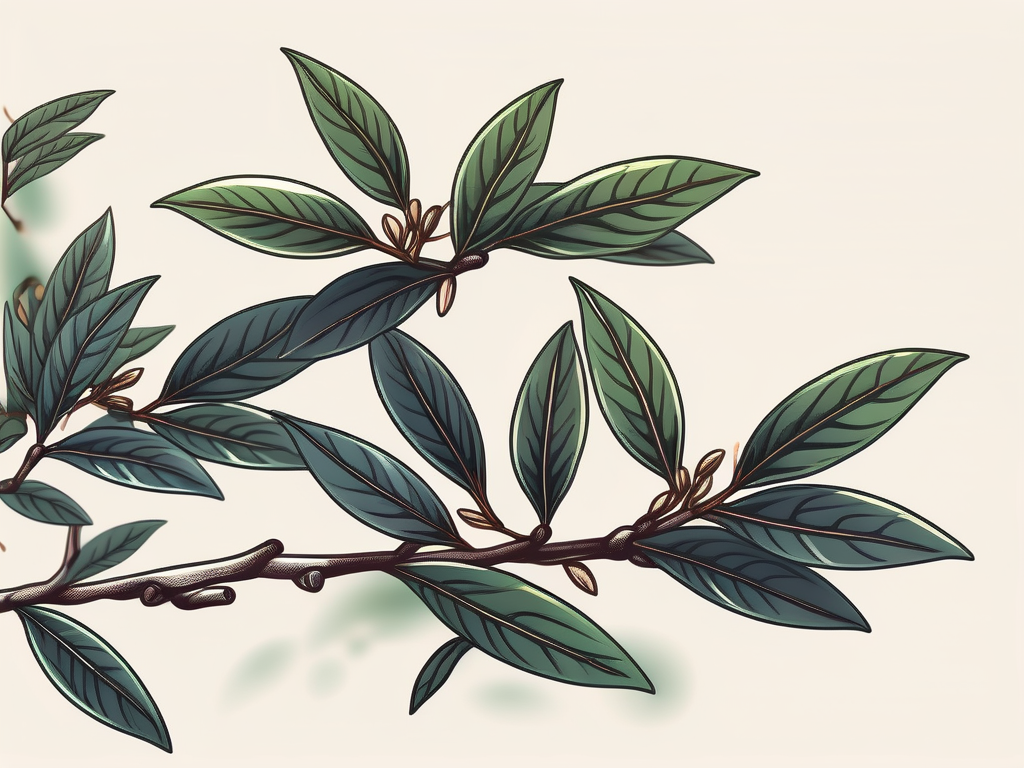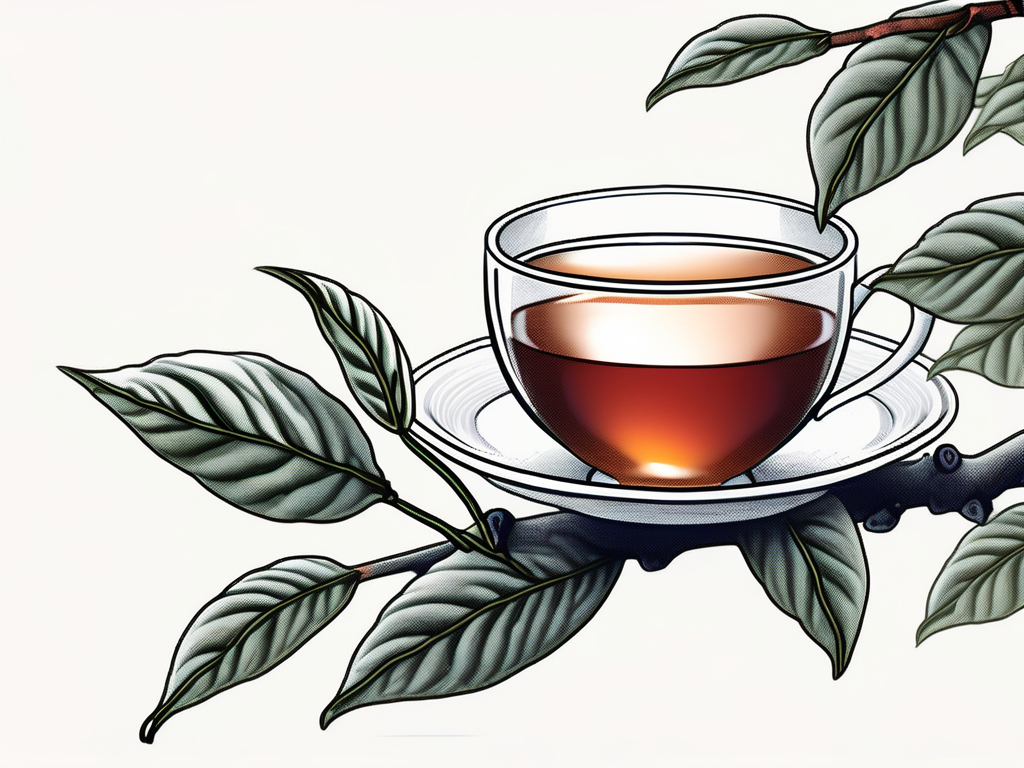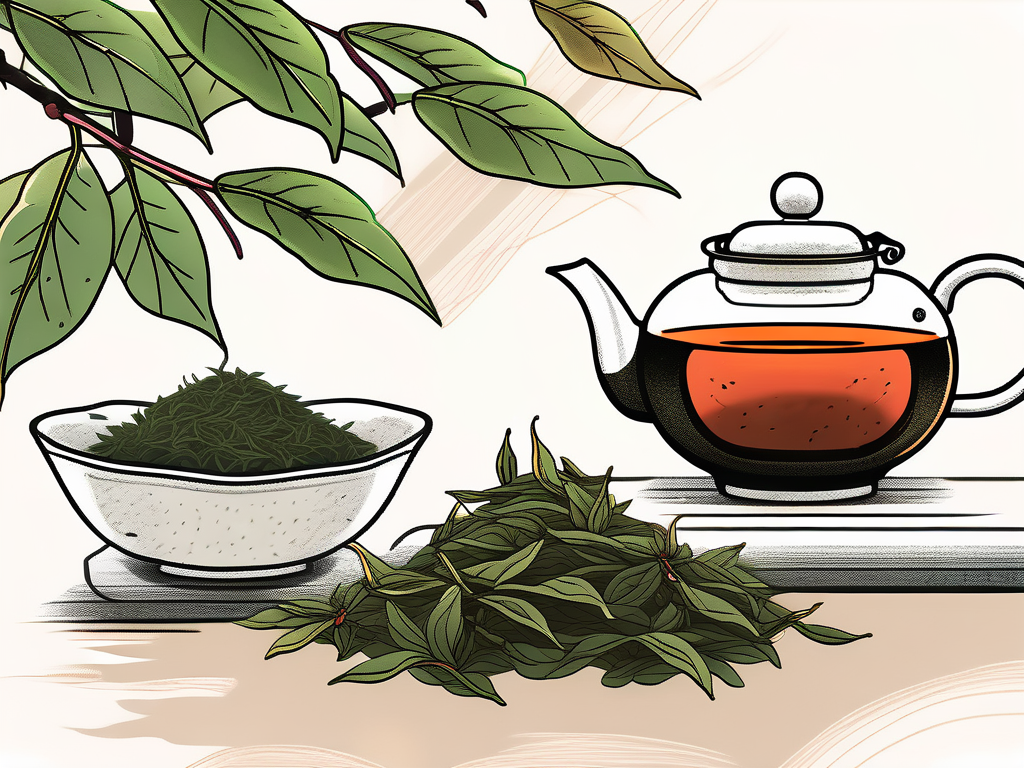
Discover the rich history and exquisite flavors of organic Keemun loose leaf tea with our ultimate guide.
If you’re a tea lover, you might have heard about the exquisite Organic Keemun Loose Leaf Tea. In this ultimate guide, we’ll dive deep into the world of Keemun tea, exploring its history, brewing techniques, taste profile, health benefits, and proper storage methods. Whether you’re a beginner or a seasoned tea enthusiast, this article will provide you with all the knowledge you need to fully appreciate this delightful tea.
Understanding Organic Keemun Loose Leaf Tea
Before we dive into the specifics, let’s take a moment to understand what exactly Keemun tea is. Keemun tea is a type of black tea that originated in China. It is known for its bold flavor, smooth texture, and rich aromas. Keemun tea has a long-standing history, and it has become a favorite among tea connoisseurs around the world.
Keemun tea is often described as having a wine-like sweetness with notes of pine and floral undertones. Its complex flavor profile makes it a versatile tea that can be enjoyed on its own or paired with various foods. The leaves of Keemun tea are carefully hand-picked and processed to preserve their delicate flavors, resulting in a high-quality tea that is cherished by many.
The History of Keemun Tea
The history of Keemun tea can be traced back to the late 19th century. It was first produced in Qimen County, Anhui province, China. Keemun tea gained popularity during the Qing Dynasty and quickly became one of the top teas exported from China. Its distinct flavor and unique production methods have made it a sought-after tea for centuries.
Legend has it that Keemun tea was created by a failed civil servant named Yu Ganchen, who decided to make tea instead of pursuing a career in government. His innovative approach to tea production led to the creation of Keemun tea, which soon gained recognition for its exceptional quality and taste. Today, Keemun tea remains a symbol of Chinese tea culture and craftsmanship.
What Makes a Tea Organic?
Now that we understand the background of Keemun tea, let’s explore what it means for a tea to be organic. Organic tea is grown without the use of synthetic fertilizers, pesticides, or genetically modified organisms (GMOs). Instead, organic tea farmers rely on natural methods, such as composting and crop rotation, to maintain the health and sustainability of the tea plants. Choosing organic tea ensures that you’re consuming a product free from harmful chemicals and supporting environmentally-friendly farming practices.
Organic farming practices not only benefit the consumer but also the environment. By avoiding the use of synthetic chemicals, organic tea production helps protect biodiversity, soil health, and water quality. It promotes a more sustainable and balanced ecosystem, ensuring that future generations can continue to enjoy the beauty and benefits of tea cultivation. When you choose organic Keemun loose leaf tea, you’re not just savoring a delicious cup of tea – you’re also supporting a healthier planet.
The Art of Brewing Keemun Loose Leaf Tea
Now that we’ve covered the basics, let’s delve into the art of brewing Keemun Loose Leaf Tea. Brewing Keemun tea requires attention to detail and careful execution to bring out its best flavors and aromas.
Keemun tea, also known as Qimen tea, is a famous black tea from the Qimen County in Anhui Province, China. It is renowned for its complex flavor profile, which often includes notes of wine, fruit, and floral undertones. The tea leaves are carefully processed to bring out these unique characteristics, making Keemun a favorite among tea connoisseurs worldwide.
Choosing the Right Equipment
When brewing Keemun tea, it’s essential to use the right equipment. Start with a teapot or a tea infuser that allows the tea leaves to expand fully, releasing their flavors. It’s also recommended to use filtered or spring water to avoid any unwanted taste from tap water.
For an authentic Keemun tea experience, consider using a traditional Yixing clay teapot. Yixing teapots are prized for their ability to enhance the flavor of the tea over time, creating a more nuanced and rich brew with each use. The porous nature of the clay absorbs the tea’s oils and flavors, adding depth to every cup.
The Perfect Water Temperature
Correct water temperature is crucial for brewing Keemun tea. Generally, the water should be heated to around 95 degrees Celsius (203 degrees Fahrenheit). This temperature allows the tea to steep properly, resulting in a balanced and full-bodied cup of tea. Steeping Keemun tea for about 3-5 minutes will achieve the desired results.
It’s important to note that steeping Keemun tea for too long can result in a bitter brew, so be mindful of the steeping time to extract the best flavors without overpowering the delicate nuances of the tea. Experiment with different steeping times to find the perfect balance that suits your preferences.
The Taste Profile of Organic Keemun Tea
Now that you’re familiar with the brewing process, let’s explore the complex taste profile of Organic Keemun Tea.
Identifying the Flavors
Keemun tea is known for its distinctive flavor profile. It offers a harmonious blend of fruity, floral, and slightly smoky notes. The initial sip reveals a hint of cocoa and red wine, which gradually transitions into a sweet and lingering finish. The complex flavor profile of Keemun tea makes it a delightful choice for both casual and connoisseur tea drinkers.
Furthermore, within the fruity notes of Keemun tea, one may detect subtle undertones of dried plum and apricot, adding a layer of complexity to the overall taste experience. The floral elements in this tea are reminiscent of orchids and roses, creating a delicate balance with the smoky undertones, resulting in a truly unique and satisfying flavor.
The Role of Aroma in Taste
Aroma plays a significant role in the overall taste experience of Keemun tea. As the tea steeps and releases its aroma, you’ll notice a captivating blend of floral and honey-like fragrances. The aroma adds another layer of complexity to each sip, enhancing the overall drinking experience.
Moreover, the aroma of Organic Keemun Tea can transport you to a tranquil garden blooming with jasmine and honeysuckle, creating a sensory journey with each cup. The interplay between the aroma and flavors of Keemun tea is a testament to the intricate craftsmanship involved in its production, making it a tea worth savoring and exploring in depth.
Health Benefits of Organic Keemun Tea
In addition to its exquisite taste, Keemun tea offers several health benefits that make it a worthwhile addition to your daily routine.
Originating from the Qimen County in China, Keemun tea is a type of black tea known for its bold flavor and aromatic profile. The tea leaves are carefully harvested and processed to preserve their unique characteristics, resulting in a rich and complex brew that captivates tea enthusiasts worldwide.
Antioxidant Properties
Keemun tea is rich in antioxidants, which help protect the body against free radicals and oxidative stress. The antioxidants present in Keemun tea, such as polyphenols, have been linked to various health benefits, including reducing the risk of chronic diseases and supporting overall well-being.
Moreover, the unique processing method of Keemun tea, which involves withering, rolling, oxidation, and drying, helps retain a higher concentration of antioxidants compared to other types of teas. This means that each cup of Keemun tea not only delights your taste buds but also provides a substantial dose of health-boosting antioxidants.
Potential Weight Loss Benefits
If you’re on a weight loss journey, Keemun tea might be a wise choice. It contains compounds that have been shown to boost metabolism and aid in weight management. Additionally, the moderate caffeine content in Keemun tea can provide a gentle energy boost without the jitters commonly associated with coffee.
Furthermore, the catechins found in Keemun tea have been studied for their potential role in promoting fat loss and improving exercise performance. By incorporating Keemun tea into your daily regimen, you not only savor a delightful cup of tea but also support your wellness goals with its metabolism-boosting properties.
Storing Your Organic Keemun Loose Leaf Tea
Proper storage is essential to preserve the freshness and flavor of your Organic Keemun Loose Leaf Tea.
Ideal Storage Conditions
To maintain the quality of your Keemun tea, store it in an airtight container, away from direct sunlight and strong odors. Ideally, the container should be placed in a cool and dry area, such as a pantry or cupboard. This ensures that the tea retains its flavors and aromas for an extended period.
It’s important to note that exposure to air, light, moisture, and heat can all degrade the quality of your tea. By keeping it in an airtight container, you protect it from these elements, ensuring that each cup you brew is as delightful as the first.
Shelf Life of Loose Leaf Tea
Loose leaf teas, including Keemun tea, have a shelf life of approximately one to two years when stored properly. However, for the best taste experience, it’s recommended to consume the tea within six months of purchase. Over time, the flavors may become less vibrant, but the tea will still be safe to consume.
Understanding the shelf life of your tea allows you to plan your consumption accordingly. Whether you’re a daily tea drinker or an occasional indulger, keeping track of when you purchased your Keemun tea ensures that you always enjoy it at its peak freshness.
With this comprehensive guide, you are now equipped with all the knowledge you need to fully appreciate Organic Keemun Loose Leaf Tea. From its fascinating history to brewing techniques, taste profile, health benefits, and storage methods – each aspect contributes to the overall experience of this exceptional tea. So go ahead, steep a cup of Keemun tea, and immerse yourself in its delightful flavors and aroma.

